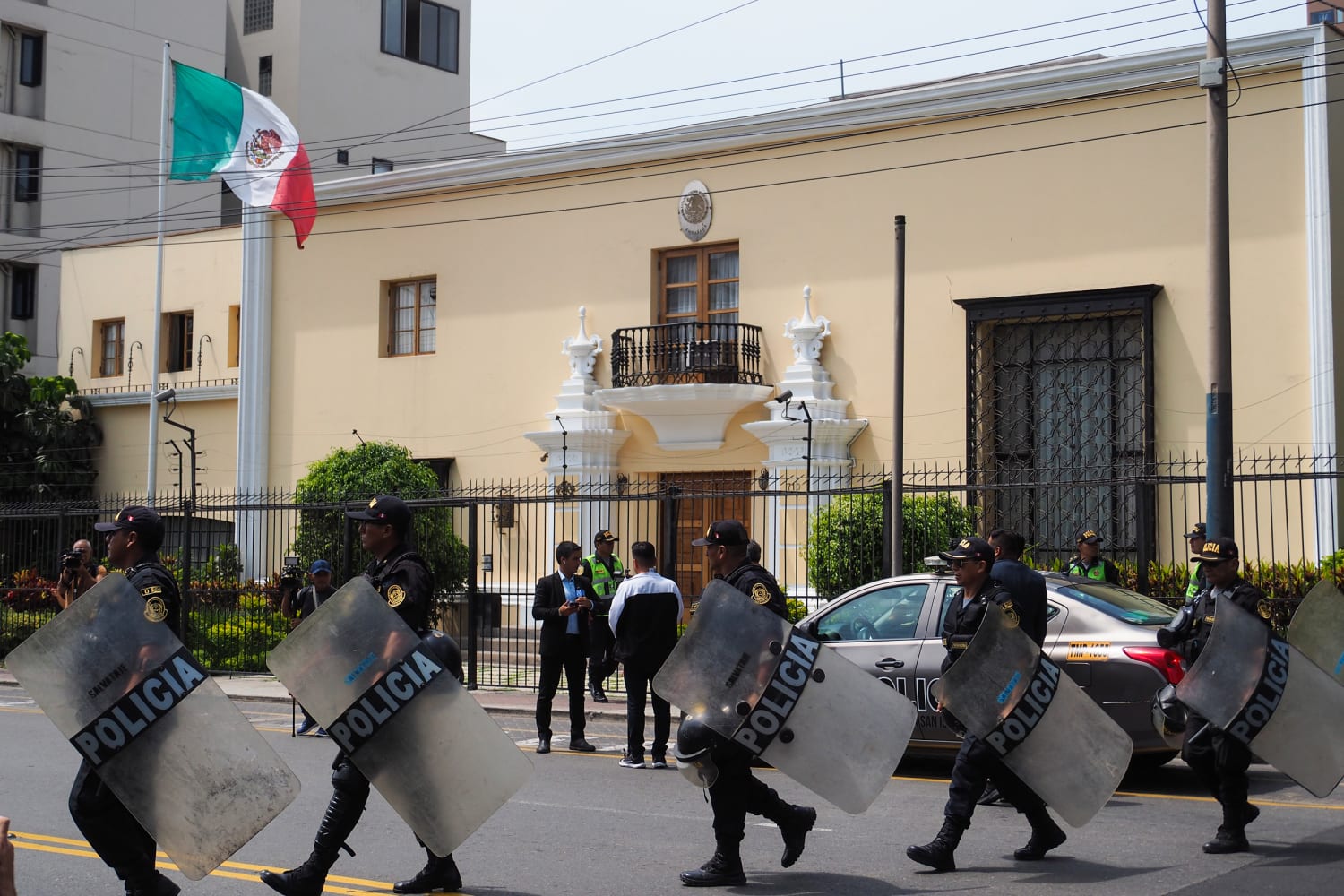[ad_1]

MEXICO CITY/LIMA — Peru declared Mexico’s ambassador to Lima “persona non grata” and ordered him to leave the country on Tuesday, Peru’s foreign minister announced, in the latest escalation of tensions between the two nations after Peru ousted Pedro Castillo as president.
The abrupt order, a severe measure in the world of diplomacy, gives Mexico’s envoy to the South American country just 72 hours to exit.
The Peruvian government’s decision came hours after Mexico’s top diplomat announced that his country had granted asylum to the family of Castillo, who faces rebellion charges from behind bars after attempting what critics have labeled a coup on Dec. 7.
Peru’s foreign ministry posted on social media that the ejection of Mexican Ambassador Pablo Monroy was due to “repeated statements from the highest authorities of that country regarding the political situation in Peru,” a thinly veiled reference to the support Mexico’s president has offered fellow leftist Castillo since his ouster by an overwhelming vote of lawmakers and his subsequent arrest.
Mexico’s foreign minister took to Twitter on Tuesday night to blast Monroy’s expulsion, deriding it as “unjustified and reprehensible.”
Last week, Mexican President Andres Manuel Lopez Obrador sharply criticized last week the removal of Castillo as undemocratic, stressing that he continues to recognize Castillo as Peru’s lawful leader.
Speaking at a news conference earlier in the day, Mexican Foreign Minister, Marcelo Ebrard, said the government was negotiating safe passage for the family of Castillo, who were inside Mexico’s Embassy in Lima.
Ana Cecilia Gervasi, Peru’s foreign minister, announced later on Tuesday that safe passage for Castillo’s wife and the couple’s two children had been formally approved.
EARLY ELECTIONS
Neither Mexican nor Peruvian officials offered a timeline for when Lilia Paredes, Castillo’s wife, or their children, will travel to Mexico.
Last week, Mexico’s government, along with leftist-led Argentina, Bolivia and Colombia, issued a joint statement declaring Castillo the victim of “undemocratic harassment.”
Days later, the week-old government of President Dina Boluarte, who previously served as Castillo’s vice president, summoned Peru’s ambassadors back home for consultations on what she derided as unacceptable interference in the country’s internal affairs.
Separately on Tuesday, a key first step in Boluarte’s push for early elections was approved by lawmakers, with 93 in favor and only 30 opposed. The proposal would bring elections forward to April 2024, two years ahead of elections currently scheduled for 2026.
Shortly after his attempt to dissolve Congress, Castillo himself tried to flee to the Mexican Embassy, but was detained by police before he arrived.
Also on Tuesday, a Peruvian court struck down a request from prosecutors to prohibit Paredes from leaving the country. She is under investigation for alleged involvement in a money laundering network that could also implicate Castillo.
“Mexico is sheltering the corrupt,” Peruvian opposition legislator Maria del Carmen Alva told journalists on Tuesday.
Lopez Obrador has often said his government prioritizes non-intervention in other nations’ domestic affairs, but he has diverted from that principle when it comes to perceived ideological allies in Latin America.
Castillo will remain locked up in pretrial detention for 18 months, after a judicial panel approved prosecutors’ request for the extension while they investigate the rebellion and conspiracy charges against the former rural teacher who won a close election last year running under the banner of the Marxist Free Peru Party.
[ad_2]
Source link
